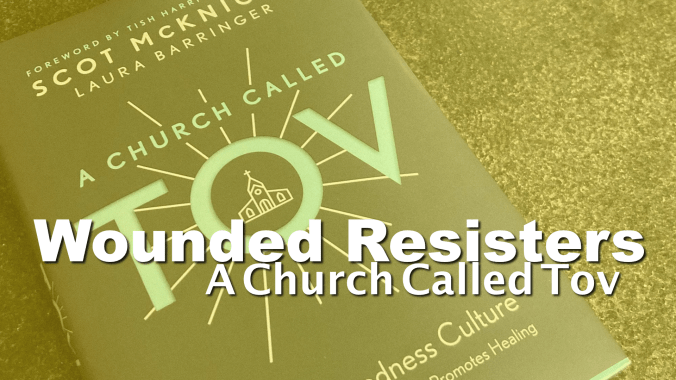
Some time ago, I listened to an interview with Scot McNight and his daughter, Laura Barringer, who together wrote the helpful book on toxic leadership, “A Church Called Tov.”
Barringer was at Willow Creek Church when Bill Hybel’s kingdom came crashing down. Like so many churches and organizations under toxic leaders, Willow Creek had indeed become a kingdom unto Bill Hybels. If you hear him tell his story, it is a good one. From a strange (and maybe abusive) upbringing and forced travels around the world as a teenager, Hybels built an incredibly globally respected ministry.
Crushing the Underlings
However, his toxic leadership has crushed many of those who relied upon him for godly wisdom and leadership. When the pastor, who is to be respected for their walk with Christ, is actually feeding on the sheep – women, especially in Hybel’s case – it can be difficult for a church member to separate their faith in Christ from their faith in the leader. Though there should be no comparison, experience tells us that the trauma caused by abusive leadership has horrible effects on those who are taken advantage of.
As McNight noted, toxic church culture is detrimental to people growing in Christ. Both the leader himself and those who are “retainers around him who are supporting this person” create a vortex of manipulation from which it is hard to extract oneself. As one missionary told me recently, our growth in Christ is stunted by those who abuse their spiritual authority by turning our hearts from Christ. And it is difficult to burrow out from under their abuse.
Masters of Persona and Image
Toxic leaders so often are “masters of persona and image.” They draw people to their charisma and charm or strong, confident preaching. They may express little or gobs of humility from the pulpit…whichever draw the crowds. Mark Driscoll was arrogant and swaggering from the pulpit. His followers loved getting beat up, driving them to follow Christ with a passion (and arrogance).
On the other hand, the preacher may exude kindness and care and humility, drawing those who are hurting and downtrodden.
For the average church goer, these toxic leaders often are a distant attraction. The pew-sitter simply enjoys the preaching and shares the sermons on social media for friends. However, those who begin to involve themselves in the inner workings of the church, whether as volunteers or employees, begin to suffer the abuse firsthand.
Questioning
Over time, invariably, they begin to question themselves. But, as McNight noted, there is guilt at the thought that they think such thoughts that their leader is toxic. He said, “Ordinary people trust pastors and think they speak for God – think they are spiritually superior.”
When they begin to have questions they figure it is their own fault. And toxic leaders know this. They take advantage of the trust that people put in them because they are pastors. In addition, McNight said people “close to famous pastors feel they are special and pastors trade on that.” Followers don’t want to be put out of community.
Boz Tchividjian, who interviewed McNight and Barringer, explained that these toxic leaders know this dynamic that a person “will second-guess themselves.” He said, the leader’s “goal is to keep that person silent.” So, they will use their power and the congregant’s fear to control the narrative. The leader will do all they can to “help” the church member question themselves.
Boz noted that in time, somebody comes forward and questions the leadership. But the response they get “automatically triggers this false narrative spinning.” The response often has little to do with the substance of the original issue. “The victim becomes the bad guy. They are marginalized and ostracized.”
Getting Rid of Bad Apples
The title of the book, “A Church Called Tov” comes from the Hebrew word meaning “goodness.” McNight and Barringer named the book as a positive goal for Christians to build churches that are “good” rather than toxic. They wrote to help people identify the bad apples and cultures that spring up under toxic leadership.
The authors encourage church members to look for a “pocket of TOV” in their church. Whether that is a small group Bible study or other group.
And then, become “wounded resisters.” Those who, though deeply hurt by their experience under toxic leadership, dig in and resist the urge to give up on Jesus and His body. I am fond of quoting, “The church is a whore . . . but she is the bride of Christ.” Though she is as white as snow, washed clean in the blood of Jesus, nonetheless, in this world, she is broken and sinful.
McNight and Barringer suggested returning to the Gospels to read the stories of Jesus. “Get vision there. Let Him minister to you. Don’t think all your spiritual ministry will come through the pastor. There’s hope on the other side.“
Ultimatey we all need to come back to Jesus. For He embodies Tov.
Get your copy of “A Church Called Tov” – KINDLE or Hardback (Pearls and Swine does get a commission from Amazon if you order through these links)